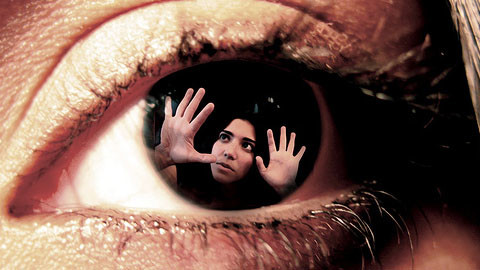We’ve all felt anxious at one point or another; it’s a perfectly normal response to stress.
Anxiety disorders are the most common of all mental health disorders and affect the lives of millions of people every year, including approximately 19 million in the U.S. alone.
If you are one of them, you may wonder if your symptoms are are some of the tell-tale symptoms of anxiety disorder, and if there are behavioral and medical treatments that might be effective for you.
What is Anxiety?
Anxiety is caused by a normal response that the body has to either a threat or danger.
When confronted with a situation the brain searches for a similar event so that it can decide how to react. If there is no such event in storage then your body must react chemically.
At this point you would enter what is called a fight of flight mode. When a fight or flight mode is entered then you will likely experience symptoms such as sweaty palms or a racing heart.
You will then either become aggressive and stand up for yourself or run like the wind.
Feeling fear and anxiety actually helps us to cope and accurately respond to stressful situations.
However, people with anxiety disorders feel stress even if there is no trigger there to set it off. This can cause problems with their mental health, personal relationships, jobs, and physical health.
The Different Types of Anxiety Disorders
Not all anxiety disorders are the same; there are actually several different classes.
Plus, just because someone has one disorder doesn’t mean they can’t have another, or at least have some overlapping symptoms.
Here’s an overview of the broad types of anxiety disorders and their symptoms:
Generalized anxiety disorder – While its normal for people to worry occasionally about things when there are lots of stressors, people with generalized anxiety disorder tend to never stop worrying.
They may be worried about finances even if they’re not tight, or constantly expecting bad things to happen even when they don’t. This constant stress can also lead to physical symptoms like fatigue, headaches, muscle aches, trembling, twitching, hot flashes, sweating, and difficulty swallowing.
Panic disorder – Unlike generalized anxiety disorder, people with panic disorder don’t have anxiety all the time. Anxiety attacks hit suddenly and without warning or cause.
An anxiety or panic attack is characterized by tight, pounding chest, terror, difficulty breathing, dizziness, shaking, nausea, numbness is extremities, chills or hot flashes, and a fear of losing control.
Social anxiety disorder – This is also known as social phobia and is an extreme fear of social interaction. People with this disorder are constantly worried about people judging them or about being embarrassed in front of people.
For some people, the disorder is so severe they don’t participate in normal socializing activities and some are even mute in certain situations.
Post traumatic stress disorder – This diagnosis has become much more prevalent in the past few years. Often, people become ridden with anxiety after a traumatic event and constantly worry about similar situations happening again.
For more severe cases, the person can be left unable to live their normal life again. While stressful events trigger the symptoms, not everyone in a similar situation will develop PTSD.
Obsessive compulsive disorder – This is an anxiety disorder that includes persistent unwanted thoughts (obsessions) and behaviors (compulsions). Someone may obsess over germs and then compulsively clean and sanitize.
Compulsive behavior often includes rituals that must be done before a person can go on with their daily lives and activities.
Do You Have an Anxiety Disorder?
The problem with some anxiety disorders is that many people don’t even realize they have them. If they’ve had the problem their whole life, it’s something they simply see as a normal part of life.
Others will likely just see them as overprotective or simply a worry wart and just write it off. While it may just seem like an inconvenience, it can build into a real problem.
The good news is that these disorders and their tell-tales symptoms are treatable. There are many new medications and therapies that can help you live a normal, healthy life.
And, there are effective natural remedies including herbs and homeopathy which can greatly improve symptoms and attacks.
Using Herbs to Calm Tension, Anxiety, Panic and Stress
PureCalm is a natural, safe and effective liquid herbal formula that works quickly to eliminate symptoms of tension, anxiety, stress, panic attacks and irritability.
PureCalm helps maintain balanced emotions during everyday pressure, stress and common nervous tension. Created by our team of experts in natural medicine, this remedy is pharmaceutically manufactured to the highest standards, combining the soothing properties of Lemon Balm with those of Lavender and Passion Flower, to bring you relief within minutes!
For those who suffer from chronic anxiety, PTSD and/or severe panic attacks, combine PureCalm with MindSoothe for effective long-term reduction of your symptoms.
Learn more about PureCalm now.
Why do we promote this?


 Fill out the form below to sign up to our free natural health and healing newsletter and stay up to date on our latest articles about holistic healing therapies and effective home remedies for common ailments. As a thank you for joining our newsletter, we’ll also send you
Fill out the form below to sign up to our free natural health and healing newsletter and stay up to date on our latest articles about holistic healing therapies and effective home remedies for common ailments. As a thank you for joining our newsletter, we’ll also send you